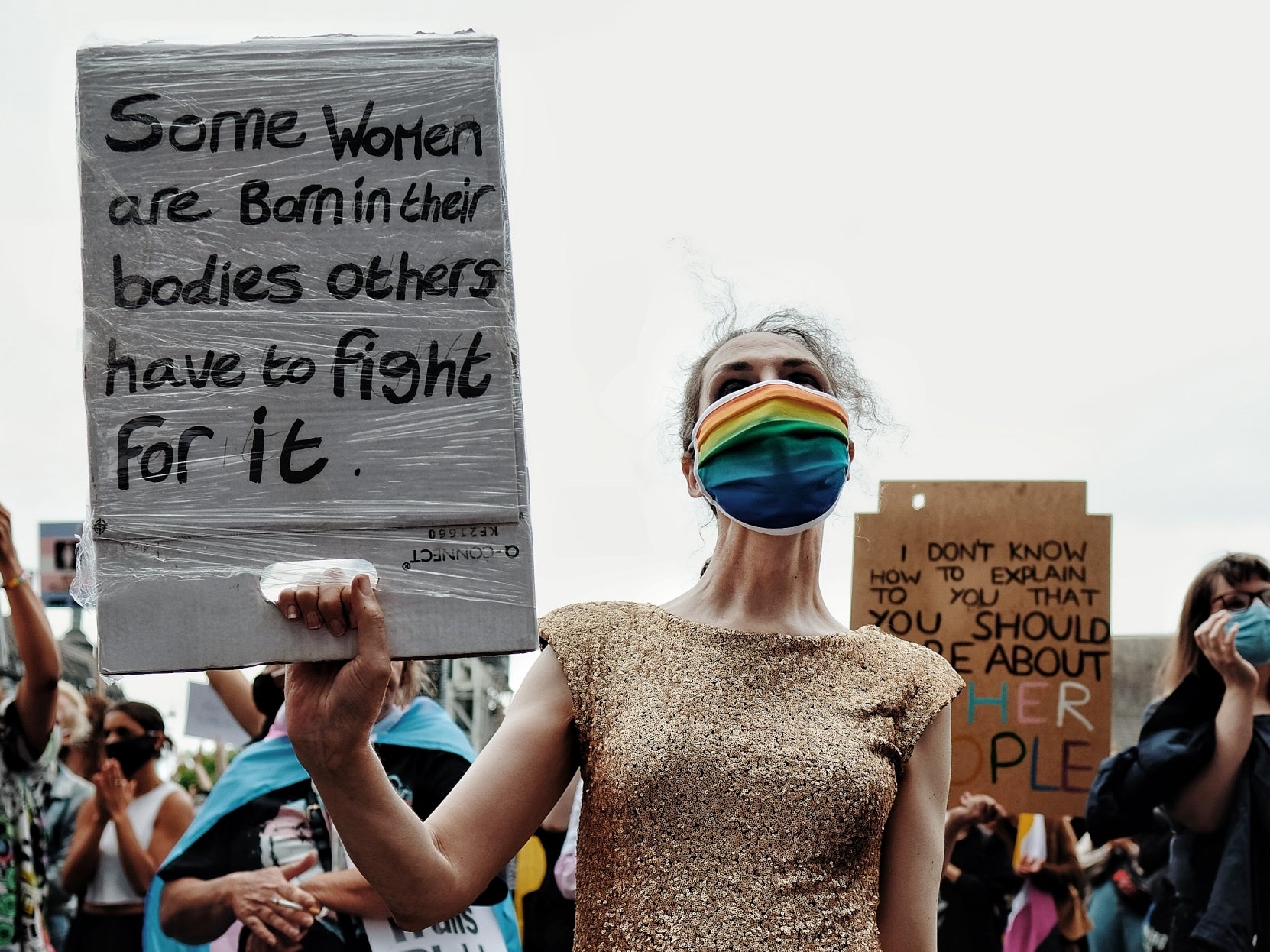‘Toxic’ debate around transgender rights harming the UK, says human rights expert
‘We have to acknowledge there are lots of difficult issues in relation to women-only spaces, but shouting at each other doesn’t help anybody,’ says former EHRC chief

Your support helps us to tell the story
From reproductive rights to climate change to Big Tech, The Independent is on the ground when the story is developing. Whether it's investigating the financials of Elon Musk's pro-Trump PAC or producing our latest documentary, 'The A Word', which shines a light on the American women fighting for reproductive rights, we know how important it is to parse out the facts from the messaging.
At such a critical moment in US history, we need reporters on the ground. Your donation allows us to keep sending journalists to speak to both sides of the story.
The Independent is trusted by Americans across the entire political spectrum. And unlike many other quality news outlets, we choose not to lock Americans out of our reporting and analysis with paywalls. We believe quality journalism should be available to everyone, paid for by those who can afford it.
Your support makes all the difference.The former chair of the Equality and Human Rights Commission (EHRC) has raised concerns over the ongoing “toxic” debate around transgender rights in the UK and its long-term impact on the country.
David Isaac, who departed from his position on Saturday after four years, said supporters and opponents of gender self-identification must recognise they have much in common and should engage in “respectful listening” in order to move forward.
Proposed changes to the Gender Recognition Act, which would allow trans people to change their birth certificate and have their identity legally recognised without a medical diagnosis, have sparked angry debate between some women’s groups and trans rights activists.
The argument deepened following reports the government plans to scrap the changes, with protests being organised by both sides of the debate.
Mr Isaac told The Observer in his final interview as EHRC chairman: “We’ve been calling for greater protection for trans people, but I’m concerned, not just about the polarisation, but also the toxic nature of debate, which is about shutting down freedom of expression and stifling discussion.
“We have to acknowledge there are lots of difficult issues in relation to women-only spaces, but shouting at each other doesn’t help anybody. We need to move beyond that toxic debate so talking to each other, engaging in respectful listening even if you disagree, that’s the only way forward.”
He said the groups “need to listen to other views”, adding: “There are lots of women who have been physically abused who are fearful, and we’ve got both groups who are anxious about being physically abused and are the subject of hate crimes, and this is currently the very thing that unites them.”
On majority of the issues, there was “lots of consensus” that discrimination against trans people should not take place, said Mr Isaac.
“It’s just that we’ve got a few areas [where there is disagreement] – toilets, refuges and the age at which young people can actually begin treatment or block their hormone development – but on the rest there is real consensus, and we never talk about that.”
The government was due to publish its response to a consultation on the proposed changes to the Gender Recognition Act in July, but this has been delayed for a third time, leaving activists on both sides frustrated.
Mr Isaac said the further delay was “disappointing” and the issues cannot be resolved “by pausing the process”. He suggested looking to how other countries have dealt with trans rights, such as France and the Nordic countries, which allow transgender people to change their gender by notifying authorities, without any medical or government intervention.
“It may be that these are more liberal environments where there is less polarisation, but they haven’t had the same toxic debate, and we need to learn from that and work out how we can replicate that,” he said.
“We as a society would suffer enormously if in a decade’s time we were still having this debate.”
Join our commenting forum
Join thought-provoking conversations, follow other Independent readers and see their replies
Comments